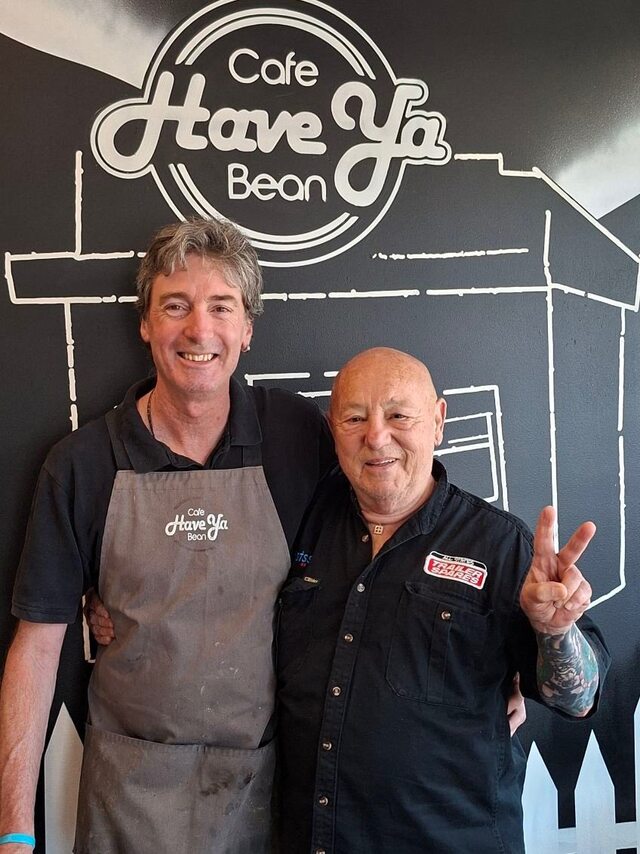Kallista resident, Joanne Ross is calling on cafes and restaurants across the Hills and Dandenongs to introduce a dedicated ‘soft menu’ option for people with swallowing difficulties, after struggling to find suitable meals for her mother, Pauline Ross, who lives with Parkinson’s disease.
Ms Ross, a rehabilitation nurse of 30 years, moved into the family home in Kallista following the sudden death of her father 18 months ago, since then, she has become her mother’s full-time carer.
“Mum’s now in a wheelchair and needs total help with everything,” Ms Ross said.
“The Parkinson’s has affected her swallowing, so she needs specific consistencies with her food to be able to safely swallow. People with Parkinson’s, motor neuron disease and stroke survivors are at high risk of food or drink going into their lungs, which can cause aspiration pneumonia. It can be very dangerous.”
Frustrated by the lack of suitable meal options in local venues, Ms Ross recently posted in The Hills and The Dandenongs Facebook group, urging cafes and restaurants to consider more inclusive offerings.
“My mum has Parkinson’s disease with swallowing difficulties. She needs to eat soft foods. It is very difficult for us when we visit cafes as the only options are scrambled eggs and chocolate mousse. I would like to challenge you all to include soft options on your menus so people with strokes, Parkinson’s and motor neuron disease can enjoy dining out,” the Facebook post reads.
While many people take the ability to eat out for granted, Ms Ross said it’s not so simple for people with conditions that affect chewing and swallowing.
“I want to take mum to cafes. I’ve got a disabled van and I can put mum in the back, in her wheelchair. We love going out, mum was a gardener and she loved travelling. I just want to take her out for her quality of life and to enjoy the things that everyone else enjoys,” she said.
Despite her best efforts, the options remain limited.
“Scrambled eggs are usually the only savoury option. Cakes are often too dry or contain nuts. Mum needs soft, smooth food like thick pumpkin or leek and potato soup, nothing with bits that could cause choking,” she said.
Ms Ross said she has adapted meals at home to ensure they’re safe and enjoyable for her mother, and believes restaurants could do the same.
“At home I make soft meals like baked fish with sauce, mashed vegetables, cottage pie without pastry, and quiches or omelettes. I’m learning all the time, but it would be really nice not to have to bring food from home.”
The idea, she said, is not to overhaul menus, but simply to consider one or two options that people with swallowing issues could enjoy.
“There are vegetarian, vegan, gluten-free options on menus and that’s great. But I’d love to see just one soft option. Maybe a crustless quiche, a soft savoury mousse, or even a nice pie without the pastry,” she said.
“Something that’s tasty and nicely presented, it’s about dignity and inclusion.”
Ms Ross said her push is also about breaking down isolation.
“People with disabilities often get forgotten, and if they can’t eat out, they tend to stop going out. It becomes socially isolating, and it’s already isolating enough,” she said.
The Patch Store’s postal manager, Natalie Collins said the cafe is open to customer feedback and tries to accommodate dietary requests where possible.
“It’s not a dedicated menu for this type of meal, but generally they can be made from our build-your-own meal section. In this area you can add and subtract the parts or types of food you’d rather not have and add more of what you want,” she said.
She said the cafe already offers dishes that may suit some diners with swallowing issues.
“We generally have soups available, and we have a lovely chilli scramble and another type on the way, breakfasts include eggs and avocado, feta, caramelised mushrooms. For lunch you could have quiches or frittata,” she said.
However, Ms Collins said offering a broader range of specialised meals can come with challenges.
“If soft options are popular and viable, that’s fine, but offering a large range is tricky due to costs and wastage. Maybe those seeking these options could suggest ideas, as long as they’re practical,” she said.
Ms Ross said she’s grateful for venues that are willing to listen, and that even small changes could have a meaningful impact.
“Even if it was just once or twice a week, it would make a huge difference. It’s not about creating a whole new menu. Just one soft savoury option, one proper meal, so that people like mum can enjoy going out again,” she said.
According to Speech Pathology Australia, more than one million Australians live with swallowing difficulties, known as dysphagia.
People swallow between 500 and 700 times a day, and when it’s impaired, it can lead to serious medical complications.
Symptoms can include coughing, choking, gagging, and food or drink going into the lungs, often leading to infections such as pneumonia.
Ms Ross said she was also moved by some of the responses to her Facebook post, including from a chef who could no longer eat solid food after cancer treatment.
“That made me really emotional, because it’s not just Parkinson’s. It can be cancer, motor neuron, stroke. People just want to enjoy a meal out like everyone else,” she said.
“This is just about inclusion and dignity and giving people back that simple joy.”

















